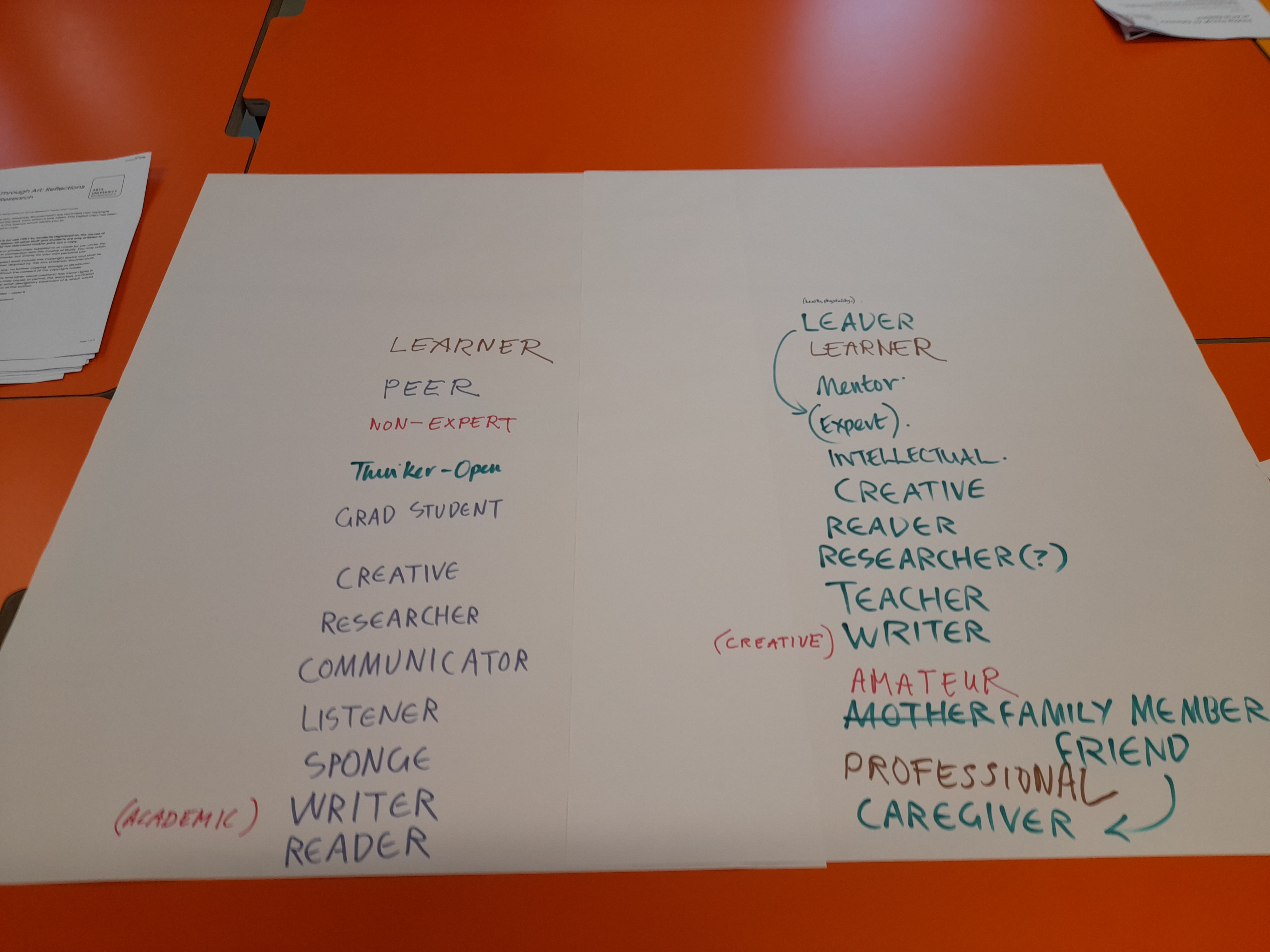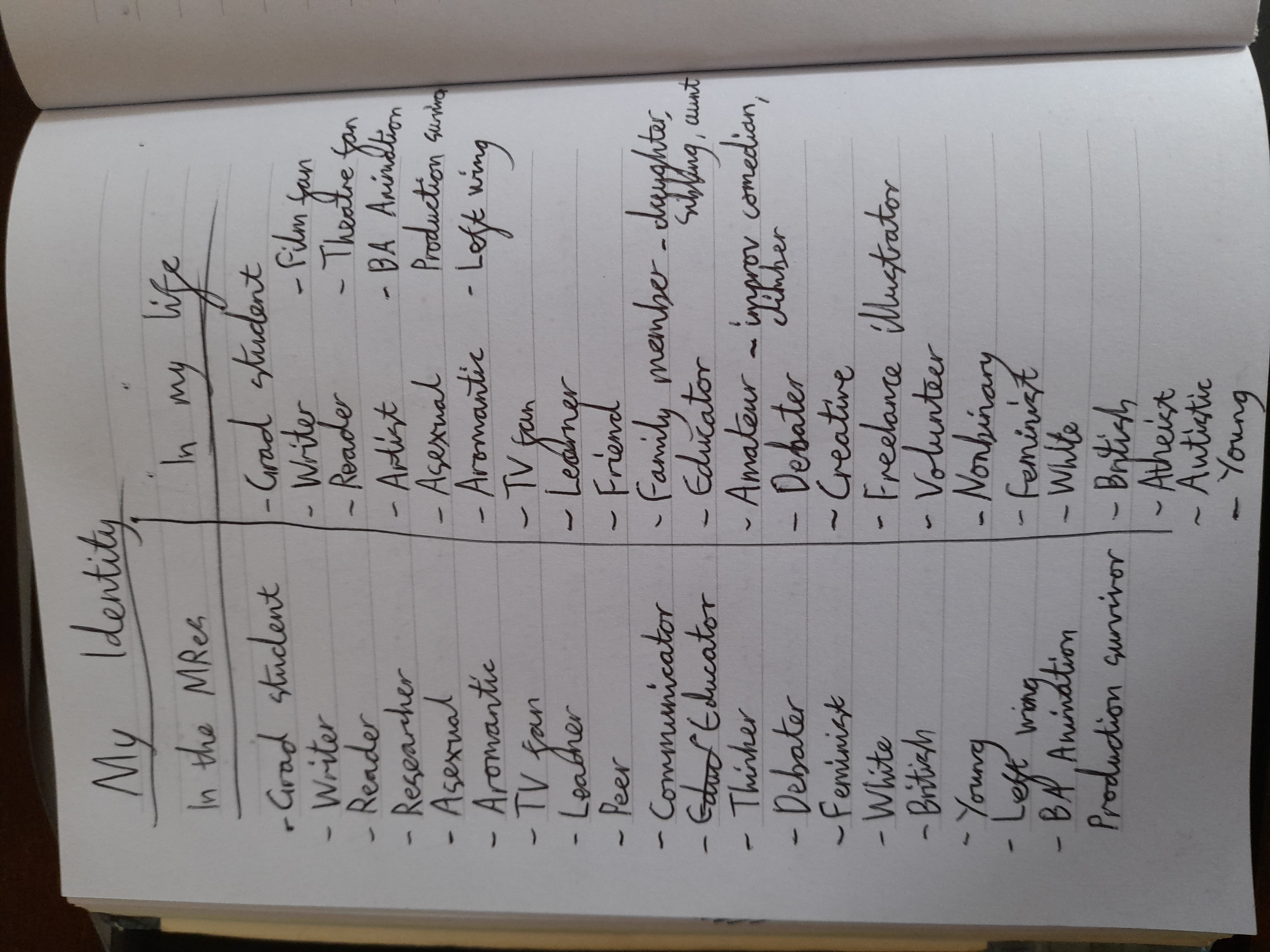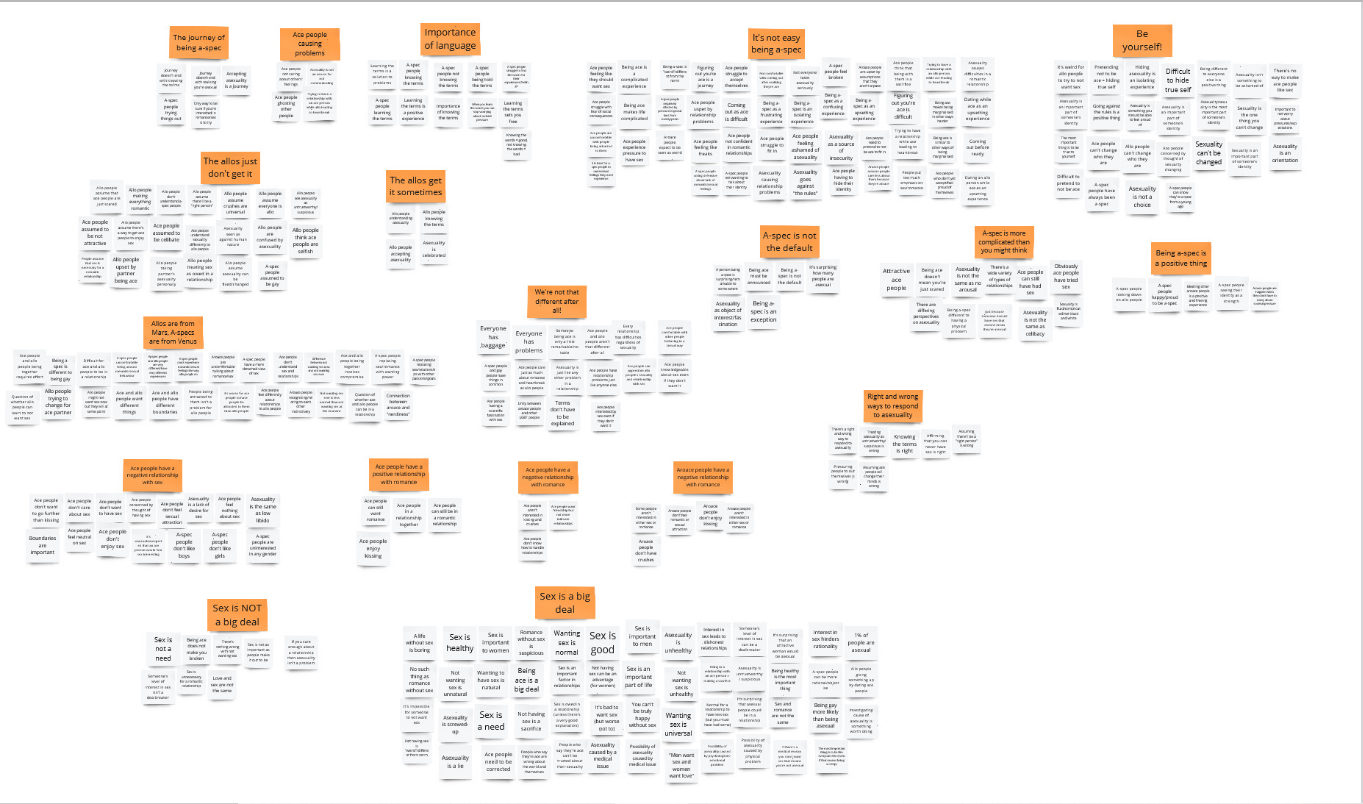


TO DO THIS WEEK:
For the writing and identity workshop on Tuesday we were asked to read the introduction to Writing and Identity - The Discoursal Construction of Identity in Academic Writing by Roz Ivanic and Sidekick by Elizabeth Price, published in Thinking Through Art: Reflections on Art as Research
Writing and Identity was all about how academics construct their identity in writing, drawing from the ideas of the social construction of self and Erving Goffman's ideas of self-presentation - basically comparing how people present their self/identity to a performer playing a character in a play. Ivanic applies this to academic writing - basically proposes you have an "autobiographical self" formed by your experiences that you bring to your writing, and in the process of writing you create a "discoursal self", a version of yourself presented in your writing. They're also concerned with to what extent academic writers present themselves as authors - how do they make themselves seem authoritative? And also how is this influenced by the possibilities academia as an institution encourages or allows for people?
I'm interested to do Tuesday's workshop and think about applying this to my own work - obviously my project is very tied up in my own identity, and I feel like I have definitely been struggling with the question of how personal I want to make it. Do I want to present myself as a detached researcher, or do I want to be clear that this is something personal to me? Ivanic is seemingly very in favour of the latter approach, she opens the introduction by kind of introducing herself and explaining all the different things she thinks influence her approach to academia.
Anyway it was all very interesting unfortunately as soon as Erving Goffman was mentioned I couldn't think of anything aside from this Stewart Lee stand-up bit. Sorry everyone.
Sidekick was very different - it's Elizabeth Price's account of working on a "boulder" made of packing tape and documenting the creation of this piece. It's less academic, more poetic, and with far less openness about the writer as a person (the only personal information she mentions is her age). It made me curious about who Elizabeth Price was outside her project with this packing tape. Apparently she's a Turner prize-winning artist and was born in 1966, but that's about all I could find from a cursory google search. Anyway, it was interesting how she talked about the process of creating this "boulder" vs writing about it, and how different these experiences are. It felt very connected to everything Emma's talked about when it comes to materials and stuff.
Finished the process of coding the TV transcripts! In an ideal world I probably would have gone over the codes a few more times to ensure I've covered all my bases and the codes are as good as they could be (I'm still not sure if they fulfill Braun and Clarke's criteria that the codes should convey all the important information if I were to lose the original data) but frankly I'm on a schedule here, and some corners are gonna have to be cut. I've got them all written up in a nice table, I think I've achieved a good balance of making codes that aren't too broad and aren't too specific either, and I think that's good enough for my purposes. Now onto theme generation!
I've been using Miro to sort the codes into themes. The process felt quite strange at first - I feel like in my first attempt at generating themes I was kind of just putting things together randomly. Here's what my initial themes looked like:

The main issue I have at the moment is that I feel like I have way too many themes. Braun and Clarke recommend between two and six themes for an 8000 word report, which is probably around the amount of words I'd be able to dedicate to thematic analysis. Taking into account what I've already written for the integrated thesis, and the fact that I'll also be writing about the focus groups, this is probably the word count I'll be able to dedicate to my thematic analysis. As you can probably see, at the moment I have nineteen themes. This situation is not good. I think one point that's important to remember is that the themes don't need to encompass every single code. This is good, because I feel like I've been kind of stretching to put every single code in a theme.
I followed Braun and Clarke's advice and went back to read through the transcripts again to see if there's any notable ideas that I don't think the current themes are capturing. Some thoughts on what's missing:
Another issue is I don't think a lot of these themes are really answering my research question. ARgh.


